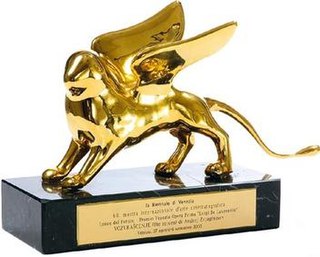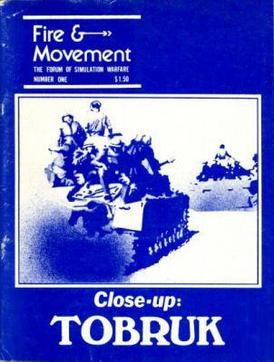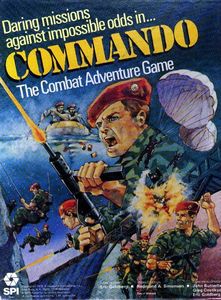Related Research Articles

The Fountains of Paradise is a 1979 science fiction novel by British writer Arthur C. Clarke. Set in the 22nd century, it describes the construction of a space elevator. This "orbital tower" is a giant structure rising from the ground and linking with a satellite in geostationary orbit at the height of approximately 36,000 kilometers. Such a structure would be used to raise payloads to orbit without the expense of using rockets. The novel won both the Hugo and Nebula Awards for Best Novel.

John Herbert Varley is an American science fiction writer.
Simulations Publications, Inc. (SPI) was an American publisher of board wargames and related magazines, particularly its flagship Strategy & Tactics, in the 1970s and early 1980s. It produced an enormous number of games and introduced innovative practices, changing the course of the wargaming hobby in its bid to take control of the hobby away from then-dominant Avalon Hill. SPI ran out of cash in early 1982 when TSR called in a loan secured by SPI's assets. TSR began selling SPI's inventory in 1982, but later acquired the company's trademarks and copyrights in 1983 and continued a form of the operation until 1987.
The Grammy Award for Best Historical Album has been presented since 1979 and recognizes achievements in audio restoration. Since this category's creation, the award had several minor name changes:
The Origins Awards are American awards for outstanding work in the gaming industry. They are presented by the Academy of Adventure Gaming Arts and Design at the Origins Game Fair on an annual basis for the previous year, so the 1979 awards were given at the 1980 Origins.

Vidhu Vinod Chopra is an Indian film director, producer, screenwriter and editor. His well-known films as director are the crime drama Parinda (1989), the patriotic romantic drama 1942: A Love Story (1994), the action drama Mission Kashmir (2000) and the biographical drama 12th Fail (2023). He is also known for producing the Munna Bhai film series, 3 Idiots (2009), PK (2014), and Sanju (2018) under his banner Vinod Chopra Films.

Flying Buffalo Inc. (FBI) is a game company with a line of role playing games, card games, and other gaming materials. The company's founder, Rick Loomis, began game publishing with Nuclear Destruction, a play-by-mail game which started the professional PBM industry in the United States. Loomis added games and players while introducing computer moderation and soon incorporated into the company Flying Buffalo Inc. The company published games in other genres, including card games such as Nuclear War and a role playing game called Tunnels & Trolls, a game similar to Dungeons & Dragons. Flying Buffalo acquired its 10,000th customer account number in 1980 and reached its largest size of 21 employees in 1983.

Game Designers' Workshop (GDW) was a wargame and role-playing game publisher from 1973 to 1996. Many of their games are now carried by other publishers.

The Golden Lion is the highest prize given to a film at the Venice Film Festival. The prize was introduced in 1949 by the organizing committee and is now regarded as one of the film industry's most prestigious and distinguished prizes. In 1970, a second Golden Lion was introduced; this is an honorary award for people who have made an important contribution to cinema.
The AACTA Award for Best Film is an award presented by the Australian Academy of Cinema and Television Arts (AACTA), a non-profit organisation whose aim is to "identify, award, promote, and celebrate Australia's greatest achievements in film and television". The award is presented at the annual AACTA Awards, which hand out accolades for achievements in feature film, television, documentaries and short films. From 1969 to 2010, the category was presented by the Australian Film Institute (AFI), the Academy's parent organisation, at the annual Australian Film Institute Awards. When the AFI launched the Academy in 2011, it changed the annual ceremony to the AACTA Awards, with the current award being a continuum of the AFI Award for Best Film.

The AACTA Award for Best Actress in a Leading Role is an award presented by the Australian Academy of Cinema and Television Arts (AACTA), a non-profit organisation whose aim is to "identify, award, promote, and celebrate Australia's greatest achievements in film and television".
The Courier was, prior to its demise in 2005, the oldest game magazine in existence.

Fire & Movement: The Forum of Conflict Simulation was a magazine devoted to wargames, both traditional board wargames and computer wargames. It was founded by Rodger MacGowan in 1975, and began publication the following year.

Source of the Nile is a board game published by Discovery Games in 1977 that simulates the exploration of Africa in the 19th century. A second edition of the game was published by Avalon Hill in 1979.
Kym Hodgeman is a former Australian rules footballer best known for his playing career with Glenelg in the SANFL from 1974 - 1980 & secondly for a 5 year stint with North Melbourne in the Australian Football League (VFL) from 1981 - 1985, before he returned to Glenelg 1986 where tasted a premiership success, playing again with the Tigers until his retirement in 1990.
The Australian Film Institute Award for Best Screenplay (Original or Adapted) was an award presented intermittently by the Australian Film Institute (AFI), for an Australian screenplay written directly for the screen or based on previously released or published material. It was handed out at the Australian Film Institute Awards (known commonly as the AFI Awards), which are now the AACTA Awards after the establishment of the Australian Academy of Cinema and Television Arts (AACTA), by the AFI. The award was handed out from 1975-1977, 1980-1982, 1990-1992, and again in 2007; two separate awards were created for "Best Adapted Screenplay" and "Best Original Screenplay" and have been presented intermittently from 1978-1979, 1983-1989, 1993-2006, and then from 2008, onwards. The award was first presented at the 1974-75 awards as a film prize which included a cash reward of $A1000.
Christopher "Choppy" Close is an Australian former professional rugby league footballer who played in the 1970s, 1980s and 1990s. A robust three-quarter back, he represented Australia internationally and Queensland in State of Origin, and played club football in Queensland and New South Wales. Close has the distinction of being one of a handful of players to be named man-of-the-match in State of Origin more than once. In fact the first two State of Origin man-of-the-match awards went to him.
The AACTA Award for Best Original Screenplay is an award presented by the Australian Academy of Cinema and Television Arts (AACTA), for an Australian screenplay "written directly and originally for the screen". Prior to the establishment of the Academy in 2011, the award was presented by the Australian Film Institute (AFI) at the annual Australian Film Institute Awards. It was first handed out in 1978 when the award for Best Screenplay was split into two categories: Best Original Screenplay and Best Adapted Screenplay. The award has since been presented intermittently from 1978-1979, 1983-1987, 1989, 1993-2006, and then from 2008-present.
The AACTA Award for Best Adapted Screenplay is an award presented by the Australian Academy of Cinema and Television Arts (AACTA), for an Australian screenplay "based on material previously released or published". Prior to the establishment of the Academy in 2011, the award was presented by the Australian Film Institute (AFI) at the annual Australian Film Institute Awards. It was first handed out in 1978 when the award for Best Screenplay was split into two categories: Best Original Screenplay and Best Adapted Screenplay. The award has since been presented intermittently from 1978–1979, 1983–1987, 1989, 1993–2003, 2005–2006, and then from 2008–present.

Commando is a role-playing game published by Simulations Publications, Inc. (SPI) in 1979.
References
- ↑ "Origins Award Winners 1980" (PDF). Retrieved January 10, 2024– via The Academy of Adventure Gaming Arts & Design.